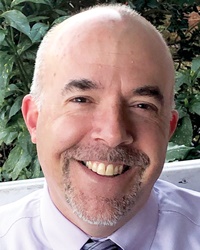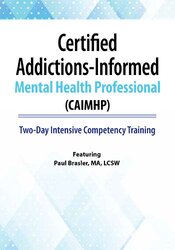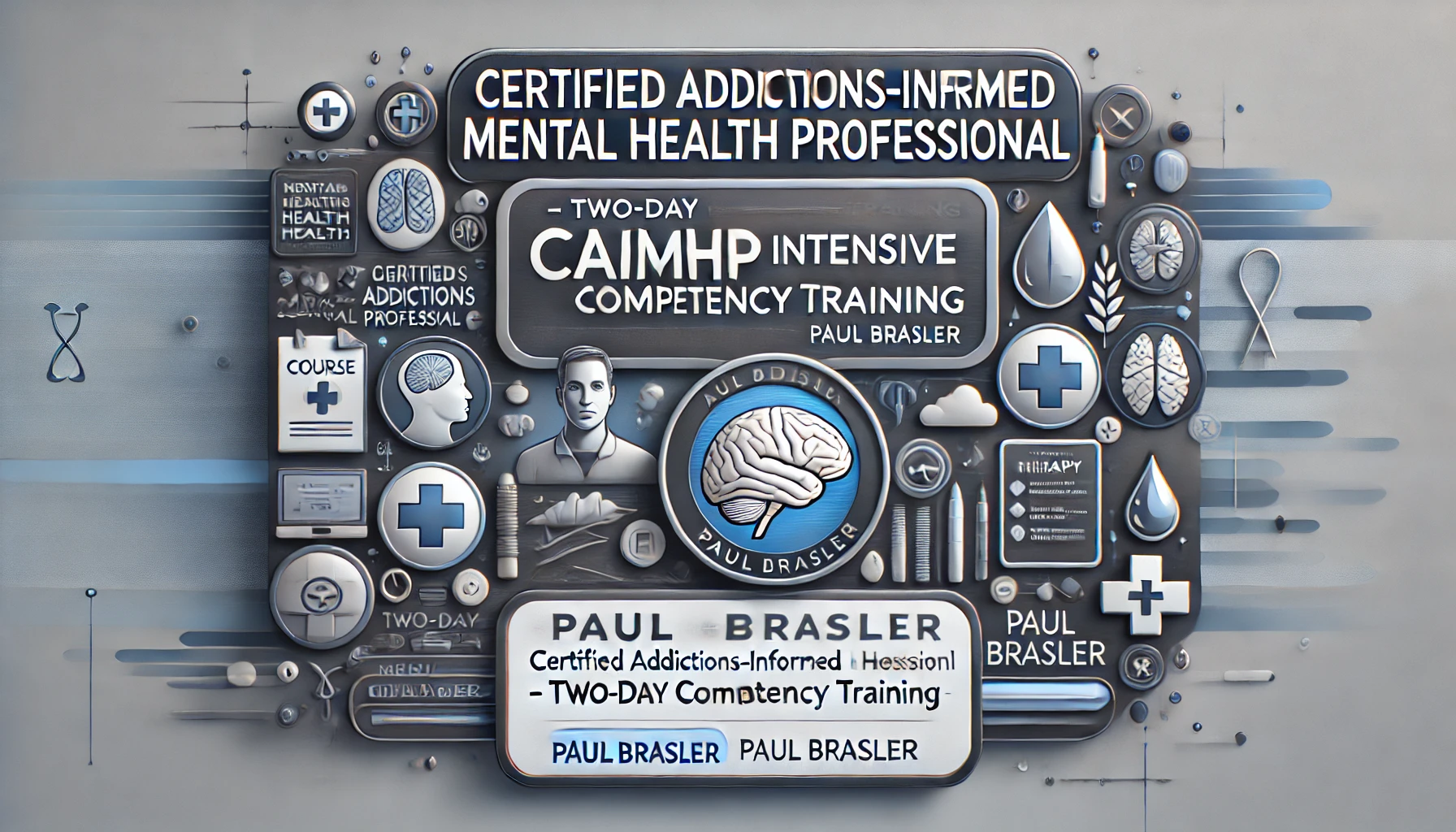Certified Addictions-Informed Mental Health Professional (CAIMHP) -Two-Day Intensive Competency Training – Paul Brasler
Certified Addictions-Informed Mental Health Professional (CAIMHP) -Two-Day Intensive Competency Training – Paul Brasler has the same quality as the author’s salapage.
Overview
Discover the Best Learning with Certified Addictions-Informed Mental Health Professional (CAIMHP) -Two-Day Intensive Competency Training – Paul Brasler
WisMentor is your ultimate destination for online learning. Explore "Certified Addictions-Informed Mental Health Professional (CAIMHP) -Two-Day Intensive Competency Training – Paul Brasler" by top authors and instructors, designed to transform your skills and career. Start now and unlock your potential!
Salepage check: Certified Addictions-Informed Mental Health Professional (CAIMHP) -Two-Day Intensive Competency Training
Author: Paul Brasler
- Faculty:
- Paul Brasler
- Duration:
- 12 Hours 18 Minutes
- Format:
- Audio and Video
- Copyright:
- Sep 16, 2020
Description
America is facing an epidemic of substance misuse, but there’s a major obstacle to getting people the help they need: There’s simultaneously a nationwide lack of training in addiction treatment for professionals as well as a massive need for people with this training. These problems are severe; many future mental health providers are graduating without ever completing a single course in substance abuse treatment.
But substance abuse is very much part of the real world of mental health treatment – even if that’s not why your clients came into your office. Be prepared to recognize substance use and get your clients the help they need.
Watch Paul Brasler, LCSW in this intensive two-day recording and he’ll walk you through numerous proven strategies and interventions that you need to effectively recognize and treat substance use disorders.
Watch this program, and through a combination of the latest addiction research and clear examples of treatment, you’ll learn:
- How to differentiate between casual misuse and addiction
- Who you should treat and when you should refer out
- Techniques to improve client engagement and treatment compliance
- How to modify your interventions for use with special clinical populations, including veterans
Best of all, this training meets the educational requirements when applying to become a Certified Addictions-Informed Professional (CAIMHP) through Evergreen Certifications. Certification lets colleagues, employers, and clients know that you’ve invested the extra time and effort necessary to understand the complexities of treating addictions in clients. Professional standards apply. Visit www.evergreencertifications.com/caimhp for to get started!
Handouts
| Manual – Certified Addictions- Informed Mental Health Professional (CAIMHP) (31.6 MB) | 175 Pages | Available after Purchase |
Outline
The Science Behind Substance Use Disorders
- Biopsychosocial aspects of substance abuse
- Attachment & trauma
- The brain’s reward system
- How metabolism impacts substance abuse
Signs of Intoxication & Withdrawal Symptoms
- Alcohol & other depressants
- Stimulants
- Opioids
- Cannabinoids
- Psychoactive plants & chemicals
- Inhalants
Assessment of Substance Use Disorders
- How to ask sensitive intake questions
- Take-home screening tools
- Identify substances that mimic other disorders
- Spot co-occurring disorders & trauma
- How to navigate a high risk of misdiagnosis
- Non-invasive drug screenings
Treatment Planning: Determine Level of Care
- How to approach level of care decisions
- Why detox alone is NOT treatment
- Detox protocols
- Types of inpatient & outpatient treatment
- When is partial hospitalization necessary
- Which treatment level is right for your client?
Recognize & Treat Behavioral/Process Addictions
- Compulsive gambling
- Compulsive sexual behaviors
- Electronic addictions
Treatment of Substance Use Disorders
Strategies to Improve Client Engagement & Treatment Compliance
- Motivational interviewing
- Reward gains & treatment compliance
- Case management: Link the client to resources
- Medication-assisted treatment
Psychodynamic Approaches
- The role of the ego in addiction & recovery
- Identify & confront defense mechanisms
- Recognize & heal past trauma
Cognitive-Behavioral Interventions
- Apply the A-B-C model to substance abuse
- Recognize triggers to use
- Foster coping skills
- Deconstruct negative schemas
Substance Use Disorders & The Family
- The family’s role in recovery
- Family member roles: Enablers & heroes
- Overcome family rules that block progress
- When the client is shielded form consequences
- How & when to engage the entire family
Treatment Strategies for Special Populations
- Children & adolescents
- Active military & veterans
- LGBTQ clients
- Pregnant women
- Older adults
Group Therapy Strategies
- Handling intoxicated members
- How group support works differently
- Barriers to treatment
- Getting people to talk
- Spotting dealers within the group
- Referring to 12-step groups & alternatives
Legal & Ethical Issues in Treating Substance Use Disorders
- Privacy laws & when you should disclose
- Impaired practitioners
- Working with incarcerated clients
- Drug treatment courts
- Bias in treating recovering clients
- Recognize & address vicarious trauma
- Limitations of the research & potential risks
Faculty

Paul Brasler, MA, LCSW Related seminars and products: 10
Paul Brasler, MA, LCSW, has worked in the social work field for the past 22 years. He is the head of behavioral health for Daily Planet Health Services, a Federally Qualified Health Center that provides comprehensive and integrated healthcare and mental health services (including medication-assisted opioid treatment). Paul is also president of Providence Consulting & Education L.L.C., through which he provides clinical supervision and professional education services.
Paul has extensive experience in working with people with substance use disorders. After finishing school, Paul went to work at an adolescent residential treatment program, where he developed a treatment track for adolescents with substance use disorders. In 2003, he became a senior clinician in the Chesterfield County Juvenile Drug Court and provided individual, family, adolescent group and multifamily group therapies. After working at the drug court for seven years, Paul moved on to conduct psychiatric and substance misuse evaluations in emergency departments in the Greater Richmond, Virginia area. Paul has also served as adjunct faculty in the school of social work at Virginia Commonwealth University, where he developed a graduate course in substance abuse treatment.
Paul has been a PESI presenter since 2016, and he has presented classes on mental health emergencies and high-risk clients across the country. He recently released his first book, High-Risk Clients: Evidence-Based Assessment & Clinical Tools to Recognize and Effectively Respond to Mental Health Crises (PESI Publishing 2019).
Speaker Disclosures:
Financial: Paul Brasler is in private practice. He receives a speaking honorarium from PESI, Inc.
Non-financial: Paul Brasler has no relevant non-financial relationship to disclose.
About Certified Addictions-Informed Mental Health Professional (CAIMHP) -Two-Day Intensive Competency Training – Paul Brasler and Our Expert Authors
Certified Addictions-Informed Mental Health Professional (CAIMHP) -Two-Day Intensive Competency Training – Paul Brasler is part of our extensive collection of over 70,000 premium courses at WisMentor. Created by renowned authors and industry leaders, this course is tailored to provide cutting-edge knowledge and actionable insights.
Why Choose WisMentor?
- 🌟 Access courses from world-renowned authors.
- 📚 Wide range of topics to suit your professional and personal growth needs.
- 💼 Lifetime access and flexible learning options.
Key Features of Certified Addictions-Informed Mental Health Professional (CAIMHP) -Two-Day Intensive Competency Training – Paul Brasler:
- ✅ Comprehensive content covering essential topics.
- ✅ Evidence-based methodologies and practical examples.
- ✅ Learn at your own pace with expert guidance.
How to Access Your Course?
Getting started is easy:
- 📩 Receive an instant download link via email.
- 🌐 Access your course anytime through your account dashboard.
- 📱 Compatible with all devices for a seamless experience.
Need Help?
Our dedicated support team is here to assist you. Visit our Contact Us page or reach out via email for any queries or assistance.
More from Our Collection:
Don’t miss the opportunity to explore more courses from top authors and enrich your learning journey at WisMentor. Find your next course now and take your skills to the next level.
Curriculum
FAQs
Requirements
- Educational Background: Participants should hold a professional license in a mental health field.
- Clinical Experience: A minimum of 100 contact hours with clients presenting substance use disorders as a co-occurring factor in mental health treatment is required.
- Continuing Education: Completion of at least 12 clock hours of continuing education covering topics such as assessment, diagnosis, addiction neuroscience, classifications of substances, behavioral addictions, comorbidities, trauma and addiction, prevention and treatment models, diversity considerations, and ethical and legal issues.
Features
- Certification Opportunity: Completion of this course meets all educational requirements to apply for the CAIMHP certification through the Institute of Certified Addictions-Informed Professionals (ICAIP).
- Expert Instruction: Led by Paul Brasler, LCSW, an experienced professional in the field of addiction treatment.
- Comprehensive Curriculum: The training covers a wide range of topics, including effective screening tools, understanding the impact of substances on brain development and functioning, differentiating between casual misuse and addiction, and evidence-based treatment models.
Target audiences
- Licensed mental health professionals, including counselors, social workers, psychologists, and therapists, seeking to enhance their competency in addressing substance use disorders.
- Professionals aiming to integrate addiction-informed approaches into their practice to better serve clients with co-occurring disorders.



